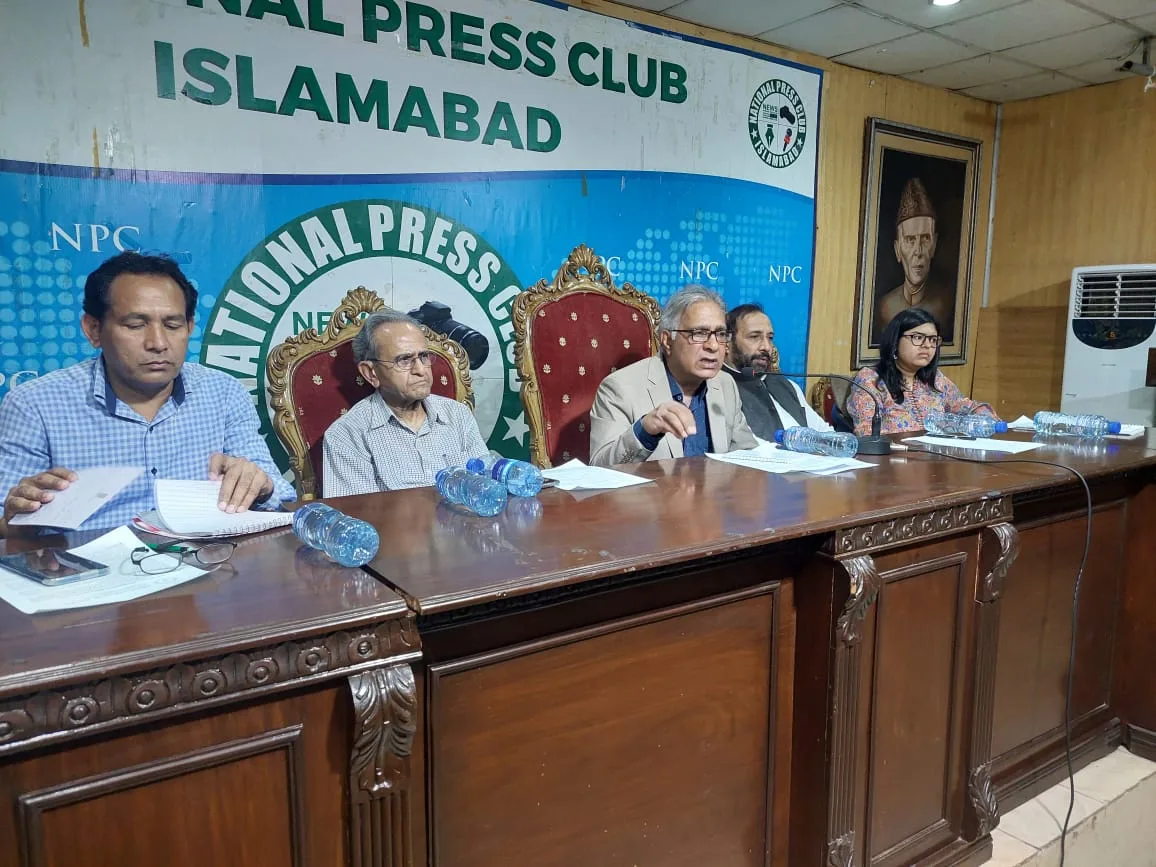ISLAMABAD, Pakistan: The federal government has been urged to improve the Commission for Minorities Bill 2023 further before its passage in the Parliament.
In a Press Conference organized by the Centre for Social Justice (CSJ) at the National Press Club in Islamabad on Friday, the panelists emphasized establishing a statutory National Commission for Minorities Rights in conforming with UN Paris Principles and the directives of the Supreme Court of June 19, 2014 (SMC No. 1 of 2014).
The Executive Director of CSJ Peter Jacob, Human Rights Defender Shafique Chaudhary, an Academic and Researcher Dr. A. H. Nayyar, and a Human Rights Activist Jayya Jaggi addressed the Press Conference.
While addressing the Press Conference, Peter Jacob said that the institutional protection of minorities in Pakistan is imperative for removing embedded inequality of rights on the basis of religion as well as to strengthen the rule of law and good governance.
Peter Jacob welcomed the introduction of the National Commission for Minorities Bill 2023 by the government in the National Assembly in February. He added that the bill in its present form manifests some gaps, which need to be addressed to make the prospective minority rights body truly functional, and effective. He said that the government should not miss an opportunity to constitute an independent, autonomous, and resourceful minority rights institution.
Shafique Chaudhary noted that the mainstream political parties including PPP, PML-N, and PTI have been making pledges in the election manifestos regarding instituting a statutory National Commission for Minorities; however, the successive governments constituted ad-hoc committees (so-called commission) under a Federal Ministry (MoRA etc.) through notification/ executive order since 1990, which were inconsistent with the standards set out for national human rights institutions. The ad-hoc commissions failed to make any progress toward policy reforms and redressing complaints related to minorities’ rights because they lacked a sound legal basis, broad mandate and competence, independence and autonomy, adequate powers and resources.
Shafique Chaudhary wished that the government had learnt from the past experiments and the issues faced by the previous minorities commissions. He implored the government to enact a permanent National Commission for Minorities’ Rights to fulfill its promise.
Dr. A.H. Nayyar said that the Supreme Court in 2014 directed the government to establish a minority rights institution with a mandate “to monitor the practical realization of the rights and safeguards provided to the minorities under the Constitution and law, and frame policy recommendations for safeguarding and protecting minorities’ rights” (SMC No. 1/2014).
The government must implement the Supreme Court’s direction in letter and spirit, and constitute a body empowered to make policy recommendations, investigate complaints, and propose remedies against human rights violations, he demanded.
In her remarks, Jayya Jaggi said that the existing national human rights institutions constituted through acts of parliament in Pakistan have set the precedent of including representation from the national commission for human rights (NCHR), national commission on the status of women (NCSW), and national commission on the rights of the child (NCRC) in their composition.
Jayya Jaggi added that the prospective commission is meant to be a human rights institution and not a religious body only, therefore, the government should drop the representation of the Council of Islamic Ideology (CII) and Evacuee Trust Property Board (ETPB) proposed in the Minorities Commission Bill, and avoid having representation of minorities on the basis of denominations.
